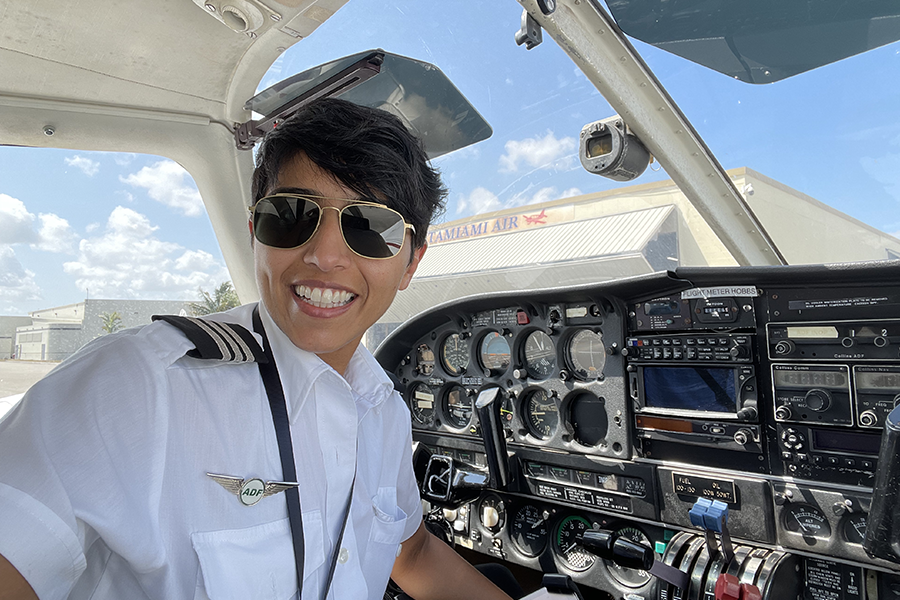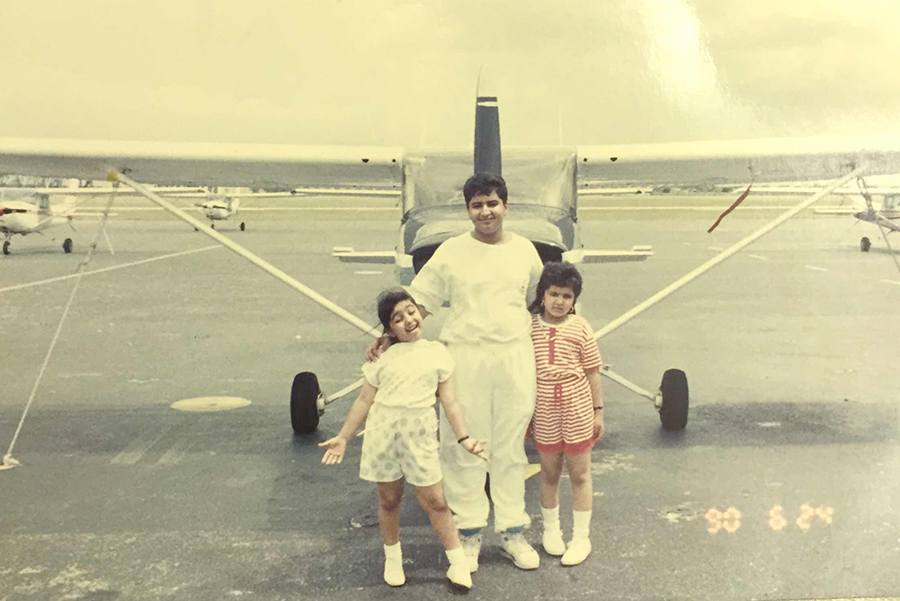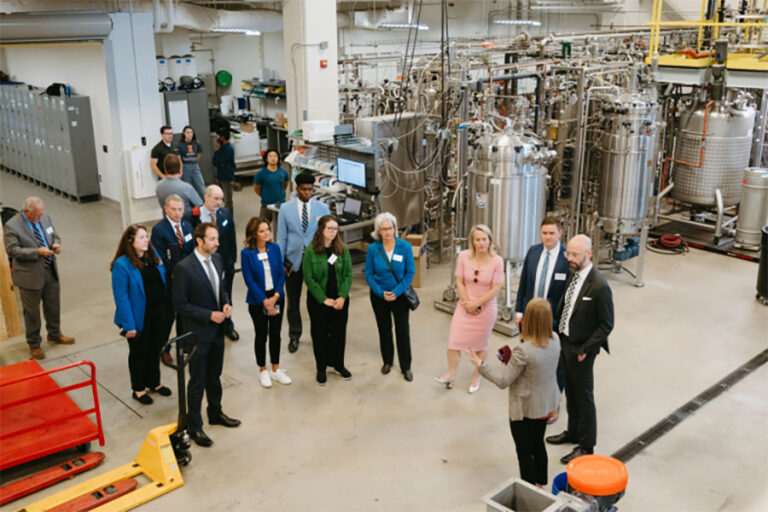
Nurturing a lifelong passion for space travel, rocket scientist Mishaal Ashemimry is helping to craft Saudi Arabia’s national space strategy. The inspiring aerospace pioneer plans to train as an astronaut and venture into space herself.
It was a night that Mishaal Ashemimry will never forget. When she was just 6, her mother took her deep into the Saudi Arabian desert to witness the majesty of the distant stars flickering across the sky. That was the night a dream was born—her dream to become a rocket scientist and reach for the stars.
“It was stunning,” Mishaal remembers. “I was so curious and I had so many questions to ask about the stars. I decided that the best way to learn was to go there, and the best way to get there was to become a rocket scientist and design my own rockets.
”With an inquiring mind and insatiable appetite for scientific discovery, it didn’t take long for Mishaal to reach escape velocity. Part of a prize-winning robotics team at her Florida high school, she earned degrees in aerospace engineering and applied mathematics, followed by a MS focused on cutting-edge research into nuclear thermal propulsion.

“These are the types of rockets that one day will be used to send humans to Mars,” she says. “Because NASA was interested, I won a scholarship and was paid to research their development.”
On her way to fulfilling her dream, Mishaal has faced discrimination challenges that are well-known to female scientists everywhere. That has not stopped her from contributing to more than 20 rocket development programs at a major aerospace company and founding her own business, MISHAAL Aerospace, at the age of 26.
Dedicated to designing and building rockets to launch small satellites into low Earth orbit (LEO), the startup completed successful tests of its own propulsion system and proved the technical and business case for what has become a fast- growing segment of the satellite industry.
“I have always wanted to push the envelope of research and enable humans to explore outer space and the stars.”
Mishaal Ashemimry, Consultant, Saudi Space Commission
Mishaal is now embarking on a new adventure on her journey to the stars. In July, she moved back to her Saudi homeland to continue her work as a consultant to the Saudi Space Commission,. In September, she became the first Saudi national to be elected a Vice President of the International Astronautical Federation.
“Saudi Arabia can achieve a great deal in space and contribute to the advancement of technologies in the space sector,” Mishaal says. “For me, it is important to push the envelope with technology development and enable even more human beings to explore space and one day traverse the Universe.”

What challenges have you faced as a woman in the aerospace industry?
I know my value. I am in this industry because I love it. What is exciting for me is designing a rocket and predicting how it is going to behave. In my field, I have often been discriminated against because I am a woman. You need a thick skin to be able to keep going forward and not lose sight of your dream. In Saudi Arabia, they recognize the wealth of my experience in the aerospace industry and as an entrepreneur. It is nice to be working in an environment that is built to be inclusive from the start.
Who are your heroes?
The scientists who developed the first rockets. We have an incredible knowledge base today thanks to their hard work. I greatly admire Wernher von Braun and Robert Goddard. They contributed significantly to the development of rockets and trailblazed an unknown area. Apart from them, I would have to say that my mom is my hero. I have seen her struggle in her life and she always persevered. She is someone I aspire to be like because she never lost hope. I would love to have that capacity to face such hardships and still have the determination and passion to continue.
Tell us about MISHAAL Aerospace.
I saw a gap in the market for rockets that launch small satellites that are 500 kilograms or less. I wanted to design and manufacture the rockets and provide launch services to the satellite operators. I was ahead of my time because this area is experiencing huge growth now. We were one of the first to try to capture the market. We were on the right track, but as is all too often the case, funding was an issue.
How are you contributing to the Saudi Space Commission?
I was thrilled when the Saudi Space Commission was created in 2018. I am truly honored to be part of the human capital that is creating a space sector in Saudi Arabia, and I am enjoying watching that happen. We aim to be active participants in space exploration and development.
What message do you have for young women interested in an aerospace career?
Pursue your passion because no matter how hard it gets, you can always get up and try again. Make sure you have a deep knowledge of the field of your choice. You need to be well versed in the intricacies of every little detail. Do not be afraid to fail because failure is the seed from which success grows. I say this from experience. You learn so much more from the failures than you do from the successes.
What are your dreams and aspirations for the future?
My dream is to be an astronaut who contributes to the advancement of science, research, and technology. I would like to contribute to research in the area of settlements on the Moon and on Mars. I studied nuclear thermal propulsion because it is a technology that we will need in order to traverse the Universe further. And I would love to go to the Moon myself.
I am full of ideas about what we need to do to have settlements there and create a thriving cislunar economy![]()
As published in FORTUNE magazine.









